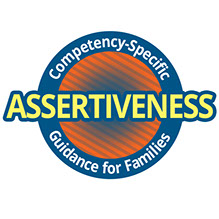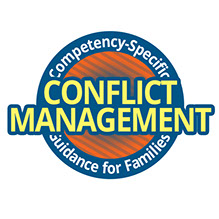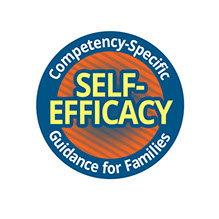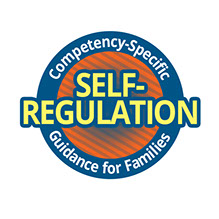
Family Guidance
Competency-Specific Guidance for Families
Click on each school level to learn several ways to help your child build skills.
Overview: Teaching Your Child the Skills That Matter
Why do some students flourish in school, college, and careers while others do not? As families, how can we help our children succeed? Education and business leaders say that intrapersonal (internal), interpersonal (social), and cognitive (academic) skills are all equally important for success in school and in life.
We want our children to be successful. Listen as Dr. Amy Gaumer Erickson, Associate Research Professor at the University of Kansas, discusses how we can help our children become engaged, career-equipped, lifelong learners.
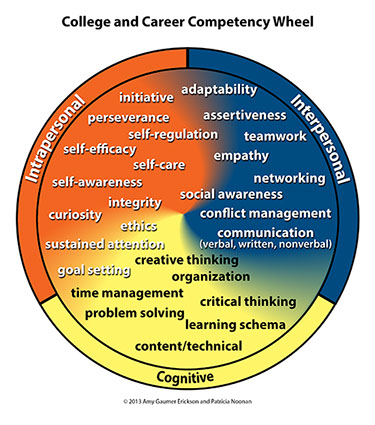
The 26 competencies on the wheel are skills people use daily to reach their goals, complete tasks, and interact with each other. Which competencies have been most important for you? It’s likely that your use of these skills has led to success at work and in your relationships.
Dr. Gaumer Erickson further explains the College and Career Competency Framework; how the intrapersonal, interpersonal, and cognitive competencies can be taught; and why we would want our children to acquire these skills.
You may be wondering how to support your child in learning intrapersonal and interpersonal competencies. We recommend focusing on one or more of the foundational competencies: Assertiveness, Conflict Management, Self-Efficacy, and Self-Regulation. Use the links at the top of the page to learn strategies that students can master as the primary, intermediate, and secondary levels. Listen as Dr. Gaumer Erickson describes the foundational competencies.
To develop college and career competencies, children need to practice these skills at home. Here are a few example strategies you can use at home to help your child:
- Attach a copy of the competency wheel to your fridge. As you see your child demonstrate an intra- or interpersonal competency, give positive feedback by saying something like “You just showed [name of competency].” Give specific examples about how your child’s behavior illustrated the competency and how that behavior can be useful in other areas.
- Ask your child to predict their the outcome for several projects or events (for example, an assignment, a game, or an art project). Later talk with them about the actual outcome versus the one they predicted. Discuss why the prediction was successful or not successful. If your child has predicted a bad outcome (such as “I’ll be lucky if I get a C on …”), ask why they think that. For an upcoming project or test, ask your child what success would look like. This helps build self-awareness and self-efficacy (the belief in your ability to achieve goals and meet expectations).
- When your child needs your help with an issues—like fixing a broken item, maintaining a friendship, or saving money for something they want—let them take the lead and attempt solutions with as little support from you as possible. Encourage your child to research issues online, ask for help, use active listening skills, ask questions, and express concerns throughout the process. Give your child feedback on their strengths, and let them make mistakes. This approach helps them build assertiveness, conflict management, self-efficacy, self-regulation.
Numerous strategies are outlined in the competency-specific family guidance. In addition, the following tip sheets provide ideas designed specifically to support adolescents as they transition from school to adult life.
10 Ways to Prepare Your Teens for College & Work
PDF: English PDF: Español
10 Ways to Build Interpersonal Competencies with Your Teen
PDF: English PDF: Español
10 Ways to Build Intrapersonal Competencies with Your Teen
PDF: English PDF: Español

